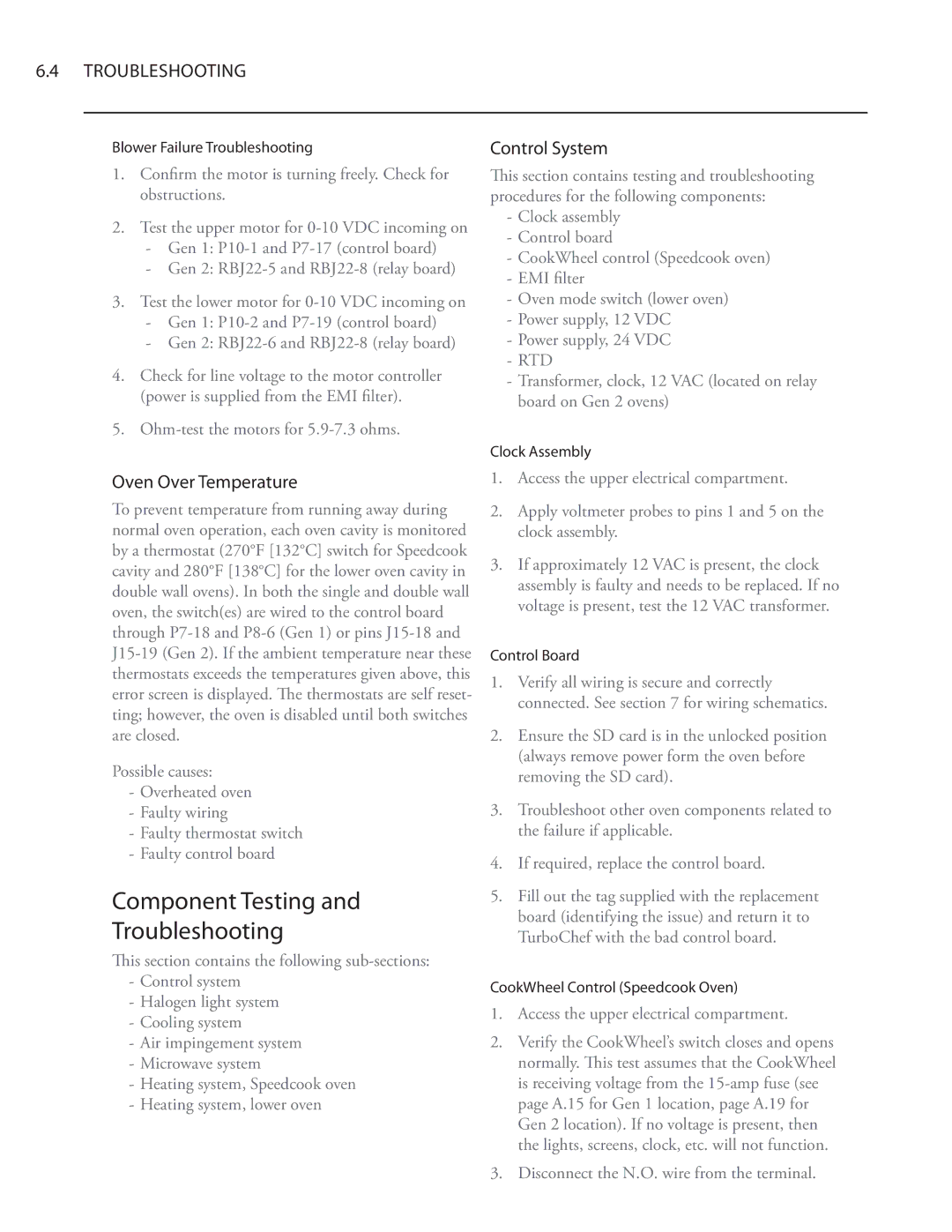6.4TROUBLESHOOTING
Blower Failure Troubleshooting | Control System | ||
1. | Confirm the motor is turning freely. Check for | This section contains testing and troubleshooting | |
| obstructions. | procedures for the following components: | |
2. | Test the upper motor for | - Clock assembly | |
- Control board | |||
| - Gen 1: | ||
| - CookWheel control (Speedcook oven) | ||
| - Gen 2: | ||
| - EMI filter | ||
|
| ||
3. | Test the lower motor for | - Oven mode switch (lower oven) | |
| - Gen 1: | - Power supply, 12 VDC | |
| - Gen 2: | - Power supply, 24 VDC | |
4. | Check for line voltage to the motor controller | - RTD | |
- Transformer, clock, 12 VAC (located on relay | |||
| (power is supplied from the EMI filter). | board on Gen 2 ovens) | |
5. |
| ||
|
| Clock Assembly | |
Oven Over Temperature
To prevent temperature from running away during normal oven operation, each oven cavity is monitored by a thermostat (270°F [132°C] switch for Speedcook cavity and 280°F [138°C] for the lower oven cavity in double wall ovens). In both the single and double wall oven, the switch(es) are wired to the control board through
Possible causes:
-Overheated oven
-Faulty wiring
-Faulty thermostat switch
-Faulty control board
Component Testing and
Troubleshooting
This section contains the following
-Control system
-Halogen light system
-Cooling system
-Air impingement system
-Microwave system
-Heating system, Speedcook oven
-Heating system, lower oven
1.Access the upper electrical compartment.
2.Apply voltmeter probes to pins 1 and 5 on the clock assembly.
3.If approximately 12 VAC is present, the clock assembly is faulty and needs to be replaced. If no voltage is present, test the 12 VAC transformer.
Control Board
1.Verify all wiring is secure and correctly connected. See section 7 for wiring schematics.
2.Ensure the SD card is in the unlocked position (always remove power form the oven before removing the SD card).
3.Troubleshoot other oven components related to the failure if applicable.
4.If required, replace the control board.
5.Fill out the tag supplied with the replacement board (identifying the issue) and return it to TurboChef with the bad control board.
CookWheel Control (Speedcook Oven)
1.Access the upper electrical compartment.
2.Verify the CookWheel’s switch closes and opens normally. This test assumes that the CookWheel is receiving voltage from the
3.Disconnect the N.O. wire from the terminal.
